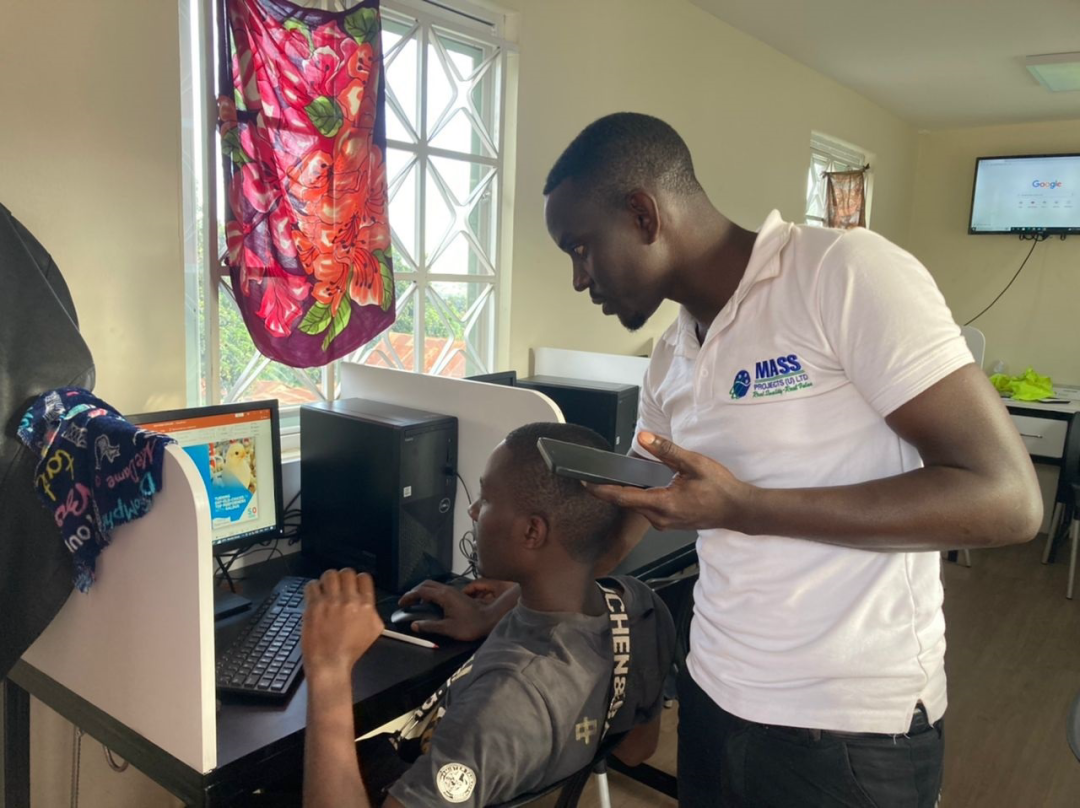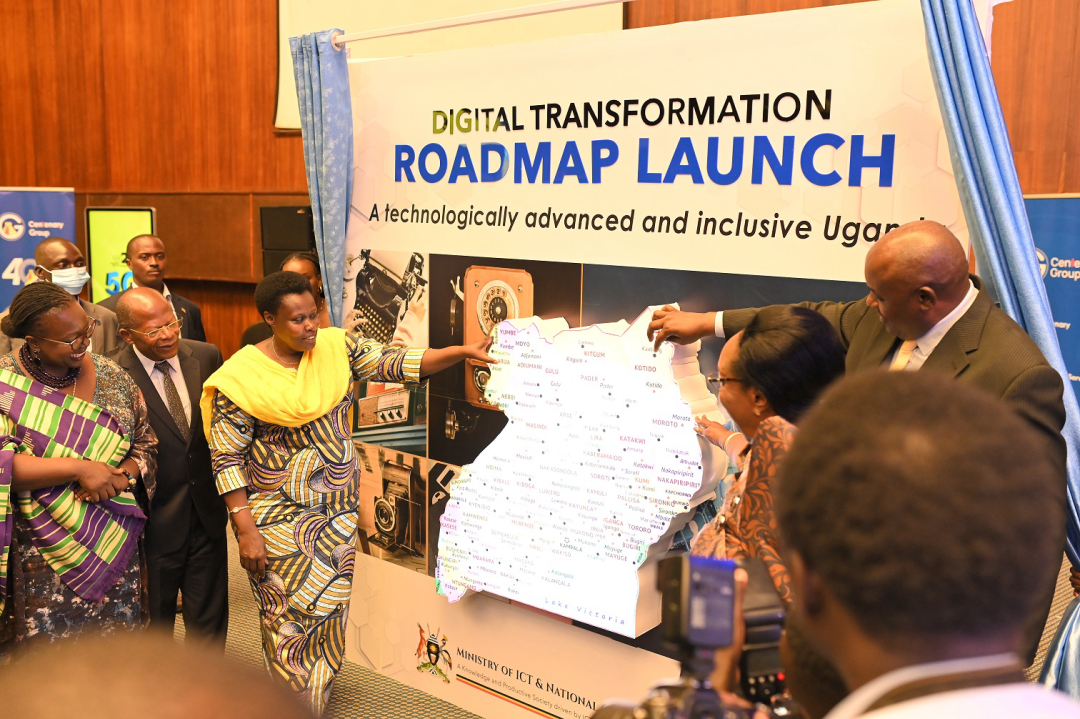Disclaimer:
Please be aware that the content herein has not been peer reviewed. It consists of personal reflections, insights, and learnings of the contributor(s). It may not be exhaustive, nor does it aim to be authoritative knowledge.
Title
Please provide a name for your action learning plan.
Designing the Uganda National Digital Transformation Roadmap using Collective Intelligence
Challenge statement
Challenge type: If you are working on multiple challenges, please indicate if this is your "big bet" or "exploratory" challenge.
Please note: we ask you to only submit a maximum of 3 challenges - 1x Big Bet, 2x Exploratory. Each challenge must be submitted individually.
BIG BET
Challenge statement: What is your challenge? (Please answer in specific terms: "Our challenge is that...”.)
Our Challenge is that Ugandans experience poor service delivery, corruption tendencies because of human interface with resources in public service and private sector, as opposed to the automation of processes, as well as fragmented attempts to digitalization which also leads to duplication of efforts.
Background: What is the history of your challenge? What is causing or driving it? Who is involved? How does the current situation look like? What undesired effects does it produce?
Digital transformation, innovation and sustainable urbanisation are some of key strategic areas for inclusive and green recovery from the COVID-19 related socioeconomic crisis as well as long-term socioeconomic transformation in Uganda. In the recent years, the rise of innovative digital technologies and smart cities have been reshaping virtually every sector and aspect of daily life, and changing the way people learn, work, trade,
socialize, and access public and private services and information. The COVID-19 pandemic accelerated these trends. The rise of digital technologies offer a unique opportunity for a country like Uganda to accelerate socioeconomic and governance transformation in terms of creation of jobs for youth, sustain economic growth, and enhance governance as well as public service delivery.
But due to challenges such as the ‘digital divide’ and ‘data security and privacy concerns’, the government, businesses, and individuals in Uganda have all yet to fully take advantage of the new digital technologies to modernize their operations and improve the efficiency and convenience of accessing public services. In this regard, Uganda’s National Development Plan III identified several priority programmes including (i) the Digital Transformation Programme which is aimed at increasing ICT penetration and use of ICT services for social and economic development; ii) the Innovation, Technology Development and Transfer Programme which is aimed at
increasing development, adoption, transfer and commercialization of technologies and innovations through the development of a well-coordinated Science Technology and Innovation (STI) eco-system; and (iii) the Sustainable Urbanization Programme which is aimed at attaining inclusive, productive and liveable urban areas for socio-economic transformation. In order for the country’s sectors to implement effectively and to be able to track progress of these mentioned programmes which are well aligned with the Digital Uganda Vision 2040 and the overall country’s development frameworks including the Global Sustainable Development Goals (SDGs), the Accelerator Lab team worked with the Ministry of Information Communication Technology and National Guidance to design a National Digital Transformation Roadmap.
Using collective intelligence and systems thinking, as our main approach, we have been engaging several stakeholders including the unusual people since the Digital Transformation roadmap is to benefit all Ugandans.
Quantitative evidence: What (official) data sources do you have on this challenge that better exemplifies the importance and urgency of this frontier challenge? You can add text, a link, or a picture.
The Uganda Bureau of Statistics (UBOS) National Labour Force Survey 2021 indicates that a staggering 88% of Ugandans have never used internet. For those that do use the internet, only 7% use it daily. When it comes to mobile phone usage, 49% of Ugandans use their own phone while 39% rely on other mediums as their source of communication and acquiring information. The Unstructured Supplementary Service Data (USSD) enabled mobile money transactions to have so far made it easy for many Ugandans to embrace this digital transfer of their finances, hence we see a much higher usage of rudimentary “feature phones” instead of smart phones in rural communities. As per the Global ICT Development Index, Uganda is below the general average of nationwide telephone penetration in Africa of 74.60 per 100 inhabitants.
Qualitative evidence: What weak signals have you recently spotted that characterizes its urgency? Please provide qualitative information that better exemplifies the importance and urgency of this frontier challenge. You can add text, a link, or a picture.
The Sensemaking we conducted with stakeholders and the solutions mapping, indicate that Low skill base to use existing equipment, Inability to repair existing equipment due to lack of in-house expertise, Inadequate operational funds to procure and maintain existing equipment, Lack of customized systems for service delivery functions mandated to the local governments, Uncoordinated ICT initiatives, Power fluctuations, Lack of commitment and initiatives by staff are among the most common challenges for digitalization in Uganda.
The Challenges of Digital Public Infrastructure in Uganda | United Nations
Development Programme (undp.org)
Designing Uganda’s Digital Transformation Roadmap | United Nations Development Programme (undp.org)
https://www.undp.org/uganda/blog/ugandas-transformational-journey-toward-digital-future
Value proposition: What added value or unique value proposition is your Accelerator Lab bringing to solving this challenge? Why is it your Lab that needs to work on this challenge and not other actors within UNDP, other stakeholders in the country respectively? Why is it worth investing resources to this challenge?
Our Value Proposition is that if the country is guided on the digital transformation parameters and ensure effective implementation as stipulated in the Digital Uganda Vision, then Uganda will accelerate socioeconomic and governance transformation in terms of creation of jobs for youth, sustain economic growth, and enhance governance as well as public service delivery.
Short “tweet” summary: We would like to tweet what you are working on, can you summarize your challenge in a maximum of 280 characters?
·
Uganda set for Digital Transformation for improved service delivery and socioeconomic growth #UGDigitalRoadmap
·
#UGDigitalRoadmap will birth a technologically advanced and inclusive Uganda.
Partners
Who are your top 5 partners for this challenge? Please submit from MOST to LEAST important and state Name, Sector and a brief description of the (intended) collaboration.
Please state the name of the partner:
Ministry of Information Communication and Technology and National Guidance
What sector does our partner belong to?
Private Sector
Please provide a brief description of the collaboration.
We were invited by the Ministry of Information and Communications Technology and National Guidance was to facilitate the process of designing the Digital Transforamtion Roadmap for the country. The Ministry trusted the Accelerator Lab methodologies that facilitated the scanning of the entire digital landscape of the country, identified the gaps, and together designed a roadmap that was well aligned with the Digital Uganda Vision and the National Development frameworks. The Ministry of ICT and National Guidance was established in June 2006 with a mandate of providing strategic and technical leadership, overall coordination, support and advocacy on all matters of policy, laws, regulations and strategy for the ICT sector. After the process, we handed over for effective implementation.
Is this a new and unusual partner for UNDP?
Yes
Learning questions
Learning question: What is your learning question for this challenge? What do you need to know or understand to work on your challenge statement?
·
Does Uganda have the required infrastructure for last mile internet connection?
·
Do Ugandans have digital skills to be able to uptake digital solutions for improved service
delivery?
·
Which sectors have digitized their services? What are their challenges?
·
How can the country plan for technological waste?
·
Does the country have data policies and are they well equipped to support data privacy
and curb cybercrime?
·
Are the schools ready for the digital skilling programme?
To what stage(s) in the learning cycle does your learning question relate?
Grow
Usage of methods: Relating to your choice above, how will you use your methods & tools for this learning question? What value do these add in answering your learning question?
The tools and methods selected above will be used to generate the right baseline data, to design a fit for purpose roadmap that will be easily implementable in diffferent contexts within the country. The methods allow for all stakeholders in the space to collaborate effectively and understand their part in the entire digital transformation journey of Uganda. Collective intelligence will play a big part in the initial iteration of the roadmap to gather as much feedback as possible for the final product. systems thinking will alllow us to view the transformation journey as a system and how different parts affect the system but most importantly, how they can integerate to avoid duplication, wastage and frustration.
Existing data gaps: Relating to your choice above, what existing gaps in data or information do these new sources of data addressing? What value do these add in answering your learning question?
There is a data gap in the digital divide. For instance, we needed to know how many people in each district of the country, have digital skills. We also needed to know how many digital skilled teachers does the country have at the various levels. This information was to help us design an appropriate digital skilling programme.
There is also a data gap on the infrustrure to support digitalization. Whereas the Ministry of ICT and National Guindance had the data about the size of the National Broadband Network, they didn't have data on the new districts in the country. This is because some districts didn't have electricity to support the network.
There is also a data gap on cyber security.
Closing
Early leads to grow: Think about the possible grow phase for this challenge - who might benefit from your work on this challenge or who might be the champions in your country that you should inform or collaborate with early on to help you grow this challenge?
·
Government is set to align the Digital Transformation Roadmap with the upcoming Fourth
National Development Plan (NDP IV) to ensure full and effective implementation.
·
The Private Sector to participate in the provision of last mile infrastructure development for connectivity.
·
Development partners have already created a Digital Transformation working group to monitor implementation and avoid duplication of efforts.
·
The Ministry of Education has integrated digital skilling strategy in the national
curriculum of education at all levels.
END OF ACTION LEARNING PLAN: Thank you! The form saves automatically and your submission has been recorded. You may now exit this window.




 4Quality education
4Quality education 8Decent work and economic growth
8Decent work and economic growth 9Industry, innovation and infrastructure
9Industry, innovation and infrastructure
Comments
Log in to add a comment or reply.